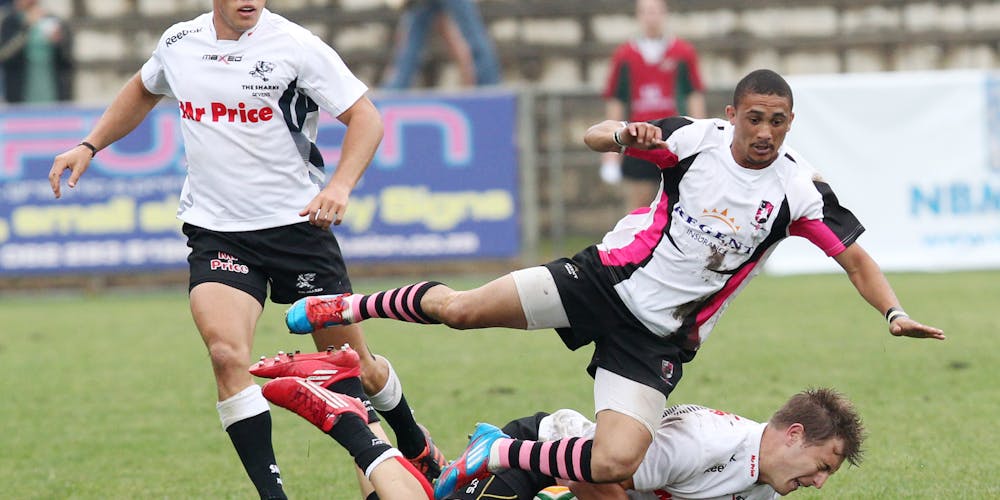Over/under betting is a popular form of sports betting that has become increasingly prevalent in the world of football. It involves predicting whether the total combined score of a game will be over or under a preset line set by the bookmakers. This type of betting offers an exciting alternative to traditional win-loss bets, providing bettors with another avenue to capitalize on their football knowledge and analysis.
The Basics of Over/Under Lines

At its core, over/under betting revolves around a predetermined line set by the bookmakers. This line represents the total number of points that are expected to be scored in a game. Bettors then have the option to wager on whether the final combined score will be higher (over) or lower (under) than this line.
Understanding the Over/Under Line
The over/under line is a crucial element in over/under betting. Bookmakers carefully analyze various factors, such as team offenses, defenses, and historical scoring trends, to set a line that they believe will attract equal action on both the over and under. This line is typically displayed as a decimal, such as 45.5 or 53.0, to avoid the possibility of a push (a tie) when the final score lands exactly on the line.
Placing Over/Under Bets
To place an over/under bet, bettors simply need to choose whether they believe the total combined score of the game will be higher (over) or lower (under) than the predetermined line. The odds for each outcome are typically displayed alongside the line, allowing bettors to assess the potential payout for their wager.
See more: tỷ lệ kèo bóng đá
Factors Influencing Over/Under Odds

The odds associated with over/under bets are not set in stone. They can fluctuate based on a variety of factors that bookmakers take into account when adjusting the lines.
Team Offensive and Defensive Capabilities
One of the primary factors that influence over/under odds is the offensive and defensive capabilities of the teams involved. Teams with potent offenses and porous defenses are more likely to contribute to a higher-scoring game, which could make the over option more attractive to bettors. Conversely, teams with strong defensive units and conservative offenses may lead to lower-scoring affairs, making the under a more appealing choice.
Historical Scoring Trends
Bookmakers also closely examine the historical scoring trends of the teams and the specific matchup. They’ll look at factors such as the average number of points scored in past meetings, the teams’ recent scoring performances, and any significant changes in their personnel or coaching staff that could impact their offensive or defensive output.
Weather and Field Conditions
Environmental factors, such as weather and field conditions, can also have a significant impact on over/under odds. Inclement weather, such as heavy rain or high winds, can make it more difficult for offenses to move the ball downfield and score, potentially leading to a lower-scoring game and a shift towards the under.
Injuries and Suspensions
Injuries or suspensions to key offensive or defensive players can also sway over/under odds. The absence of a team’s starting quarterback, for example, could lead to a less productive offense and a shift towards the under.
Analyzing Team Statistics for Over/Under Predictions

When it comes to over/under betting, a deep understanding of team statistics and historical data can be a valuable asset for bettors.
Offensive and Defensive Efficiency
Examining a team’s offensive and defensive efficiency metrics, such as points per game, yards per play, and red zone scoring percentages, can provide valuable insights into their potential to contribute to a high-scoring or low-scoring game.
Pace of Play
The pace at which a team plays can also be an important factor in over/under betting. Teams that favor a fast-paced, up-tempo offense are more likely to contribute to a higher-scoring game, while teams that play at a slower tempo may lead to lower-scoring affairs.
Strength of Schedule
Analyzing a team’s strength of schedule can help bettors assess the level of competition they’ve faced and how that might impact their future scoring output. Teams that have faced tougher opponents may have their offensive and defensive numbers skewed, which could affect the over/under line.
Trends and Streaks
Identifying trends and streaks, both for individual teams and the matchup itself, can also be valuable in predicting over/under outcomes. For example, a team that has been consistently exceeding or falling short of the over/under line in recent games may indicate a shift in their scoring patterns.
The Role of Home Advantage in Over/Under Betting
The home-field advantage can play a significant role in over/under betting, as it can impact both the offensive and defensive performance of the teams involved.
Crowd Noise and Field Familiarity
The home crowd’s energy and the familiarity of the home team with their own playing surface can provide a boost to the offense, potentially leading to more points scored and a higher likelihood of the game going over the total.
Travel Fatigue and Defensive Adjustments
Conversely, the away team may struggle with travel fatigue and have a harder time making defensive adjustments, which could result in more points being scored and the game going over the total.
Stadium and Weather Conditions
The specific characteristics of the home stadium, such as its indoor or outdoor nature, as well as the local weather conditions, can also influence the over/under outcome. For example, a domed stadium may be more conducive to higher-scoring games compared to an outdoor venue with inclement weather.
Strategies for Winning Over/Under Bets
While over/under betting may seem straightforward, developing effective strategies can significantly improve a bettor’s chances of success.
Identifying Value in the Line
One key strategy is to identify instances where the over/under line appears to be set too high or too low based on your analysis of the teams and the matchup. By finding value in the line, bettors can capitalize on potential mispricing by the bookmakers.
Tracking Trends and Patterns
Closely monitoring trends and patterns in the teams’ scoring performances, both individually and in their head-to-head matchups, can help bettors anticipate future over/under outcomes.
Leveraging Situational Factors
Paying attention to situational factors, such as the teams’ motivations, potential lineup changes, and the importance of the game, can also provide valuable insights into how the game might unfold and affect the final score.
Diversifying Your Bets
To manage risk and maximize potential returns, it’s often recommended to diversify your over/under bets across multiple games or even combine them with other types of wagers, such as point spreads or moneyline bets.
Is Over/Under Betting Easy? A Realistic Assessment
While over/under betting can be an exciting and potentially rewarding form of sports betting, it’s important to have a realistic understanding of the challenges and complexities involved.
The Difficulty of Predicting Scoring Outcomes
Accurately predicting the total number of points scored in a football game can be extremely challenging, as there are numerous variables and unexpected factors that can influence the final score.
The Importance of Comprehensive Analysis
Successful over/under betting requires a deep understanding of team statistics, historical trends, and a wide range of contextual factors that can impact the scoring output of the teams. This level of analysis demands time, effort, and a keen eye for detail.
The Role of Luck and Randomness
Even with meticulous analysis, the inherent unpredictability of sports means that an element of luck and randomness will always play a role in the outcome of over/under bets. This can make it difficult to sustain long-term profitability, especially for casual bettors.
The Risks of Emotional Decision-Making
Over/under betting, like any form of sports betting, can be susceptible to emotional decision-making, such as chasing losses or making impulsive bets based on biases or hype. Maintaining a disciplined and objective approach is crucial for long-term success.
The Advantages and Disadvantages of Over/Under Betting
As with any form of sports betting, over/under betting has its own set of advantages and disadvantages that bettors should consider.
Advantages
- Diversification: Over/under bets offer an alternative to traditional win-loss bets, allowing bettors to diversify their portfolio and potentially mitigate risk.
- Excitement: The anticipation of whether the final score will exceed or fall short of the predetermined line can add an extra layer of excitement to watching the game.
- Potential for Higher Payouts: In some cases, over/under bets may offer more favorable odds and the potential for higher payouts compared to other types of wagers.
Disadvantages
- Complexity: Accurately predicting the total number of points scored in a game requires a deep understanding of various factors, which can be more challenging than simpler betting options.
- Volatility: The inherent unpredictability of sports means that over/under bets can be subject to significant swings and a higher degree of volatility, making it difficult to maintain consistent profits.
- Potential for Emotional Decisions: The excitement and potential for big payouts associated with over/under bets can sometimes lead to impulsive or emotionally-driven decision-making, which can be detrimental to long-term success.
Responsible Gambling Practices in Over/Under Betting
Regardless of the type of sports betting, it’s crucial for bettors to adopt responsible gambling practices to ensure their enjoyment and financial well-being.
Setting Realistic Expectations
Bettors should approach over/under betting with a clear understanding that it is a form of entertainment and not a reliable source of income. Setting realistic expectations and betting within their means is essential.
Practicing Bankroll Management
Effective bankroll management, such as setting a fixed budget for betting and avoiding chasing losses, can help bettors mitigate the risks associated with over/under betting and maintain a sustainable approach.
Seeking Professional Help for Problem Gambling
Individuals who find themselves struggling with problem gambling should not hesitate to seek professional help and support. Resources such as counseling services and self-exclusion programs can provide valuable assistance in addressing gambling-related issues.
Conclusion: Navigating the World of Over/Under Football Betting
Over/under betting in football offers an exciting and dynamic way for bettors to leverage their knowledge and analysis of the sport. However, it’s crucial to approach this form of betting with a realistic understanding of its complexities, risks, and the importance of responsible gambling practices.
By developing a deep understanding of the factors that influence over/under lines, analyzing team statistics, and employing effective strategies, bettors can increase their chances of success. At the same time, maintaining a disciplined and objective mindset, diversifying their bets, and prioritizing responsible gambling are essential for long-term enjoyment and financial well-being.
As with any form of sports betting, over/under betting should be approached with caution and a clear understanding of its inherent challenges and uncertainties. By navigating this landscape with a balanced and informed approach, bettors can maximize their chances of success and derive the maximum excitement and enjoyment from this captivating aspect of football betting.

